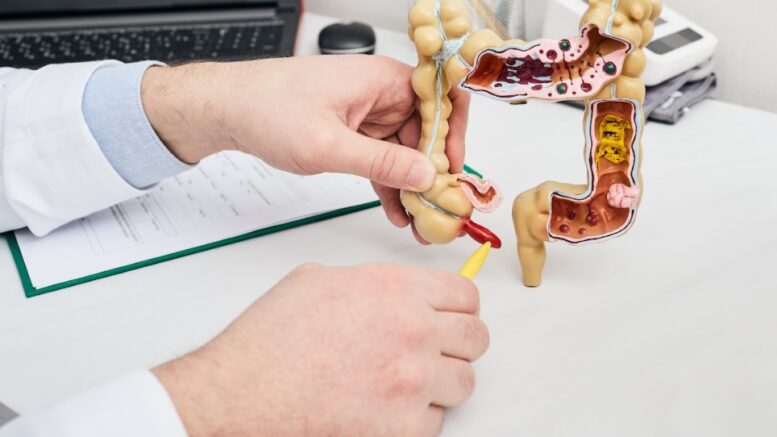Diarrhea is a common disease that many people don’t mind because it typically lasts for just a day or two. However, it’s another matter entirely if you have been experiencing persistent loose bowel movement, along with other symptoms like fatigue, weight loss, abdominal cramps, loss of appetite, and even bloody stools. Your family doctor may suspect that you have inflammatory bowel disease (IBD), and you may need to visit a specialist in the gastrointestinal (GI) tract to confirm the finding.
Inflammatory bowel disease is an umbrella label that doctors use to describe disorders involving prolonged digestive tract inflammation. Two common types of IBD are Crohn’s disease and ulcerative colitis. However, if you suspect that you are suffering from IBD, it would be best to consult a specialist in gastroenterology because they specialize in diagnosing and treating diseases in the digestive tract.
To prepare you for your consultation, here are seven questions to ask your gastroenterologist about inflammatory bowel disease:
Is My Condition Really IBD?
Correctly diagnosing inflammatory bowel disease can be challenging because the signs are similar to common gut problem symptoms. For example, many people interchange irritable bowel syndrome (IBS) with IBD because their symptoms may feel the same even if they’re two different conditions. Some doctors may even misdiagnose Crohn’s as ulcerative colitis or the other way around. Thus, it’s crucial to visit a reputable gastroenterologist that has a proven track record in dealing with IBD so they can assure you of proper diagnosis.
Is IBD Fatal?
Inflammatory bowel disease may not be a fatal condition. However, it doesn’t mean you should take your symptoms for granted, especially if you think they are still mild and bearable. This disorder can turn severe and could potentially cause life-threatening complications if not properly treated.
What Causes IBD?
For a lot of people, knowing the causes of inflammatory bowel disease is crucial. They want to know if there’s something they can do to prevent their condition. Some may even be concerned if they can pass on this disorder to their kids.
With IBD, genes play a significant factor in getting the disorder. Studies show IBD is more common among white people, and about 20% of sufferers have a family history of this disorder. Still, some other factors such as environmental and immune system problems may also contribute to developing this condition.

What Lifestyle Changes Are Needed To Help Manage IBD?
IBD is a lifelong disorder that does not have a cure. You may need to take long-term medications that could help prevent inflammation and reduce complications of the disease. Although you can’t do anything about your maintenance meds, you may ask your physician about lifestyle changes that would aid in managing inflammatory bowel syndrome. Perhaps there are types of food that you need to stay away from to prevent IBD flare-ups.
Is Surgery Needed for IBD?
IBD is a challenging disorder to have, so you may wonder if surgery can solve all your IBD woes. Your gastroenterologist will require you to undergo several lab exams, such as endoscopy and blood works, to determine if your case will require surgery. Sometimes, IBD can destroy the walls of the intestine, so your doctor may suggest an operation. But like any major surgery, procedures for IBD carry risks. So, it would be up to you, your family, and your doctor to determine if taking surgery risks is worthy for your condition.
Can Incontinence Develop Due To IBD?
One possible problem that IBD sufferers may face is fecal soiling or bowel incontinence. While not many people are comfortable talking about this delicate matter, it is a relevant concern. Talking to your doctor about dealing with extreme urgency to move the bowel may be a good idea, especially if you are planning to travel, attend an important event, or take on strenuous jobs. If you notice the occasional leaking but not full-blown soiling yet, you may already seek the help of a GI specialist as to what medicines you may need to take to prevent such events from happening.
Can IBD Increase The Risk Of Developing Colon Cancer?
One scary thing about having IBD is it increases a person’s risk of developing potentially life-threatening conditions. One possibly fatal disease you may be concerned about is colon cancer. Your colon cancer risk may be higher if your IBD is triggered by ulcerative colitis rather than Crohn’s disease. However, if found early, you may be able to treat and manage colon cancer successfully. So, your gastroenterologist may require you to get a regular colonoscopy and other tests for early detection just in case.
The Bottom Line
Inflammatory bowel disease can be a challenging condition. For guidance on living with IBD, you may need to schedule a visit with a gastroenterologist because they specialize in diseases involving the GI tract. However, to get the most out of your consultation with a specialist, you should be open and willing to ask questions even if the topics may seem complicated to ask.
